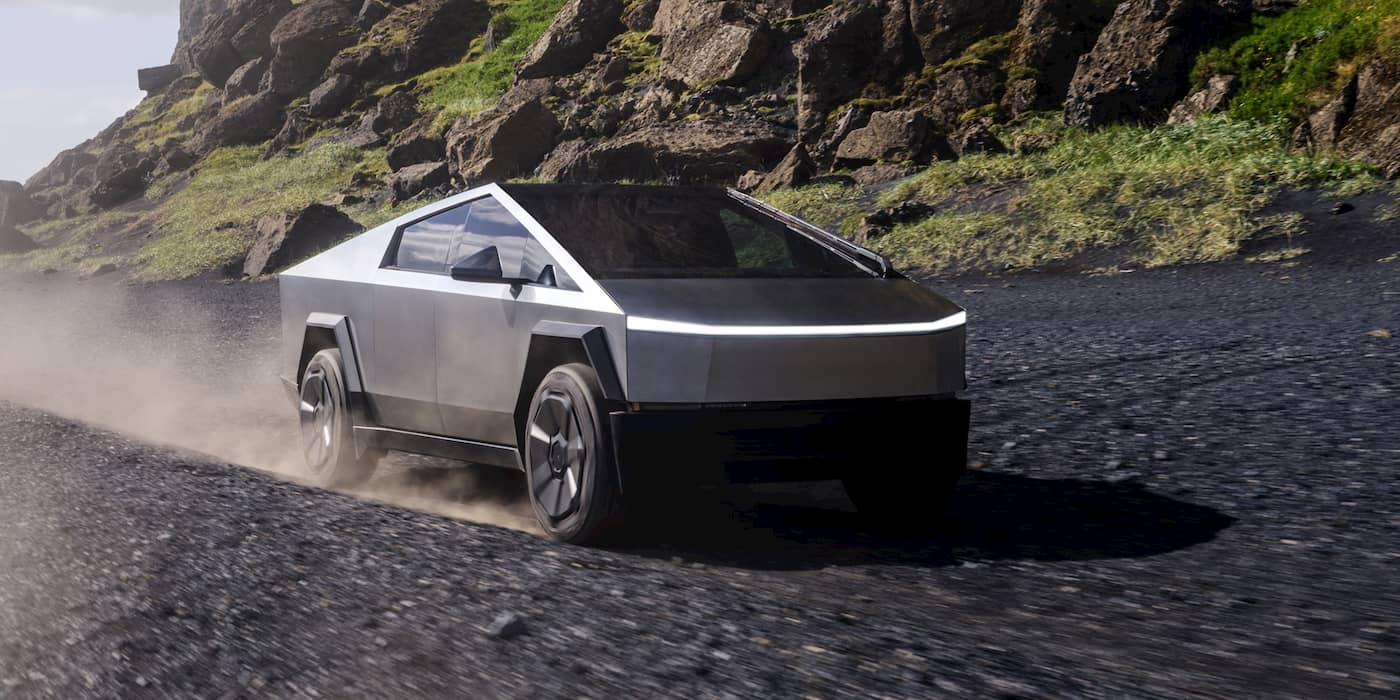
The U.S. Army has confirmed that the Tesla Cybertruck can’t be imported into Europe and cannot obtain an exemption for army personnel because the electric pickup truck “deviates significantly” from EU regulations.
When deployed overseas, U.S. Army personnel are permitted to import their personal vehicles with them through Army logistics, rather than purchasing or renting one locally.
However, the vehicles must comply with local laws and regulations.
The U.S. Army Customs Agency issued a notice this week that it can’t import the Tesla Cybertruck in Europe.
In the notice, the customs agency explained why:
The Cybertruck has no type-approval from the European Union (EU) due to significant passive safety concerns. Several specifications of the Cybertruck, particularly the sharp-edged, stiff stainless-steel body, violate EU safety standards, primarily for the protection of vulnerable road users.
EU safety standards do not only focus on the safety of the vehicle occupants but also on the safety of other road users and in particular of vulnerable road users such as pedestrians, bicyclists, and motorcyclists. These standards require, for example, passive safety features such as impact protection zones prohibiting sharp edges on the vehicle body and speed limiters on vehicles weighing over 3.5 tons – requirements clearly violated by the Cybertruck.
The agency says that it nonetheless tried to get authorization from the German Federal Ministry of Transport for an exemption for US military, but it was denied.
They wrote:
After a legal review, the German Ministry of Transport denied the request, because the Tesla Cybertruck not only fails to meet the EU legal requirements but deviates significantly from them.
The U.S. Army Customs Agency has confirmed that it will not issue import certificates for Tesla Cybertrucks, and army personnel importing Cybertrucks must do so at their own risk.
Here’s the full notice from the U.S. Army Customs Agency:
No Cybertrucks on German Roads
By Astrid Glockner, Customs Translator/Operations Specialist, Customs Executive Agency
WIESBADEN, Germany
It might come as a surprise to U.S. citizens, but it is true: Tesla’s Cybertrucks are currently not allowed to be imported or registered in Germany (or the EU).
The Cybertruck has no type-approval from the European Union (EU) due to significant passive safety concerns. Several specifications of the Cybertruck, particularly the sharp-edged, stiff stainless-steel body, violate EU safety standards, primarily for the protection of vulnerable road users.
EU safety standards do not only focus on the safety of the vehicle occupants but also on the safety of other road users and in particular of vulnerable road users such as pedestrians, bicyclists, and motorcyclists. These standards require, for example, passive safety features such as impact protection zones prohibiting sharp edges on the vehicle body and speed limiters on vehicles weighing over 3.5 tons – requirements clearly violated by the Cybertruck.
Nevertheless, the U.S. Forces submitted an inquiry to the German Federal Ministry of Transport (FMoT) about the possibility for members of the U.S. forces to import and register Cybertrucks in the USAREUR-AF system.
After a legal review, the German Ministry of Transport denied the request, because the Tesla Cybertruck not only fails to meet the EU legal requirements but deviates significantly from them. This means that a Cybertruck could also not receive national individual vehicle approval. According to the FMoT, a safe operation in German public road traffic, which is a prerequisite for registration of a privately owned vehicle by the U.S. Forces in accordance with the Supplementary Agreement to the NATO SOFA, is not ensured.
Another concern is that the Cybertruck would attract a lot of attention when operated in public traffic. This would defeat the purpose of issuing USAREUR-AF cover plates for force protection. It is commonly known that the Cybertruck cannot be registered and operated in Germany.
For the above reasons, U.S. Army Customs Agency will not issue import certificates for Tesla Cybertrucks. Personnel who nevertheless decide to import a Cybertruck, risk having to ship the vehicle back to the US at their own expense.
Electrek’s Take
This is something we have known since Tesla unveiled the Cybertruck in 2019.
Tesla took reservations from all over the world, but it was clear that the vehicle would need significant modifications to comply with many markets.
Given the current low demand for the Cybertruck, I doubt Tesla will go to the trouble of doing that.
Instead, the automaker has focused on launching the electric pickup truck in a few overseas markets that allow it as is, such as South Korea and the UAE.
FTC: We use income earning auto affiliate links. More.













